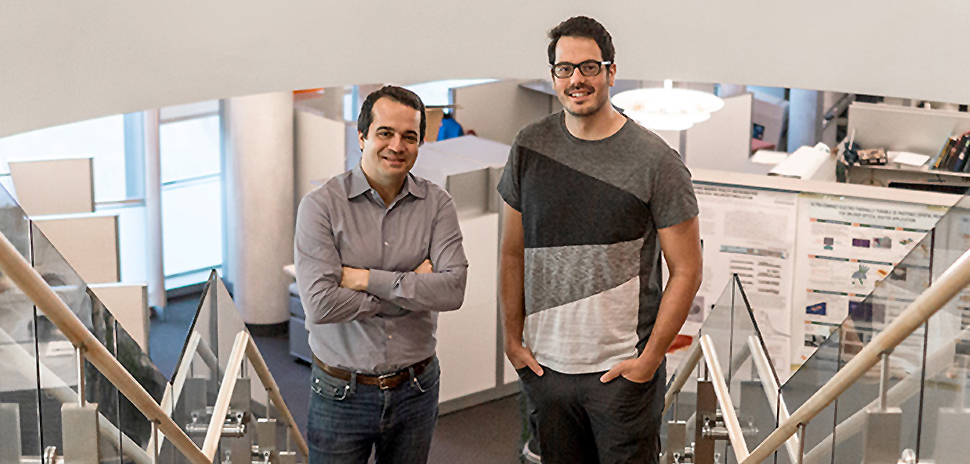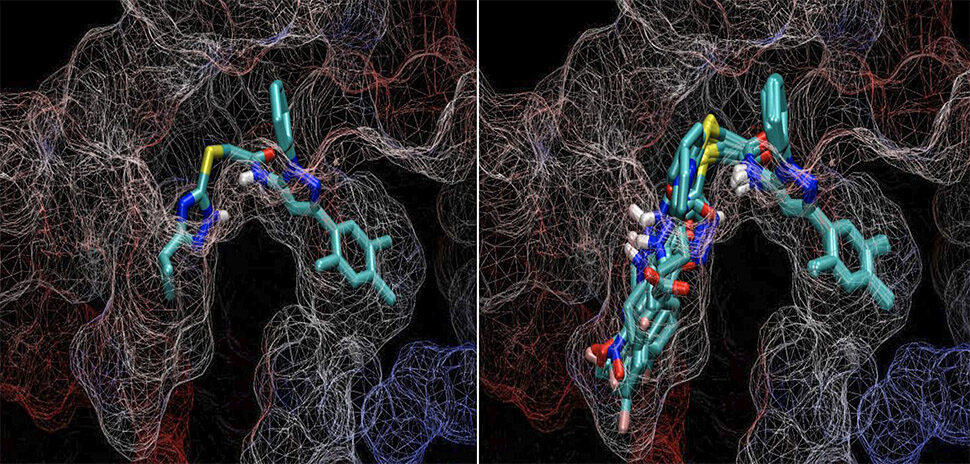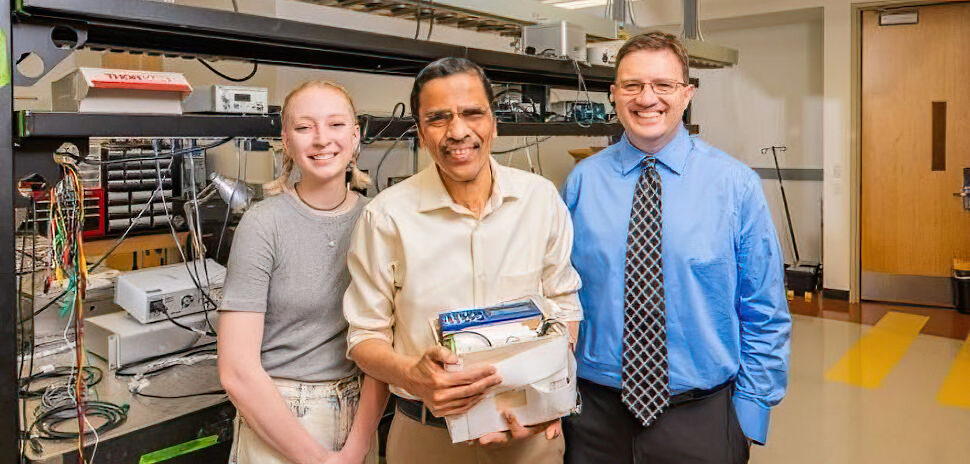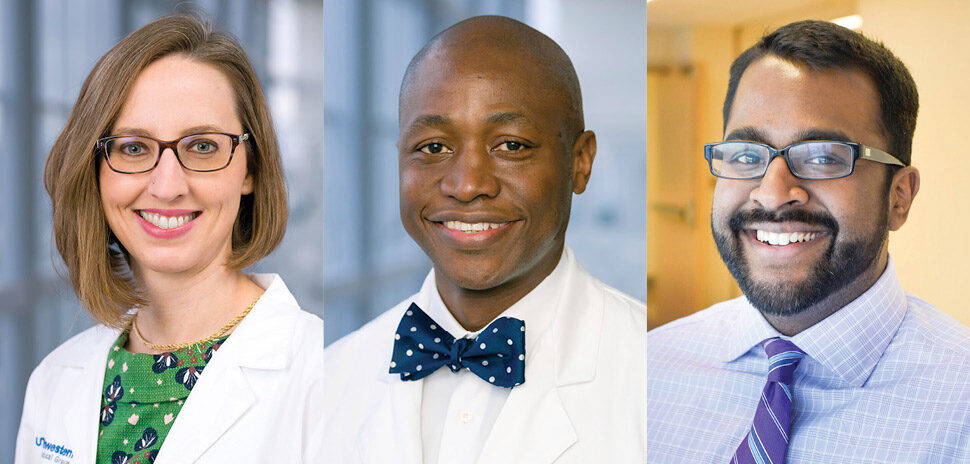WOMEN LEAD AGRILIFE’S SUSTAINABLE LIVING RESEARCH
![]() A trio of women at the Texas A&M AgriLife Research and Extension Center at Dallas are among the leaders in agricultural and ecological research in North Texas who are finding new ways to support sustainable urban and suburban living.
A trio of women at the Texas A&M AgriLife Research and Extension Center at Dallas are among the leaders in agricultural and ecological research in North Texas who are finding new ways to support sustainable urban and suburban living.
The women are Dr. Jeanmarie Verchot, director of the extension center, Dr. Qingyi Yu, principal investigator in the center’s genomics research program, and Dr. Ambika Chandra, principal investigator of the Dallas center’s turfgrass breeding program.
The work of these scientists was featured recently by the AgriLife center on its website.
“These viruses, particularly potato virus y, are devastating to staple potato crops.”
Jeanmarie Verchot
Verchot, in addition to helming the center, is principal investigator in a study seeking to understand the cellular mechanisms that enable the spread of potato virus x and y, the AgriLife center said.
“These viruses, particularly potato virus y, are devastating to staple potato crops,” Verchot said. “We’re working to understand them for an eventual means of controlling those viruses.”
Yu is leading ongoing initiatives that focus on a gene her team believes could be a circadian oscillator, what AgriLife called a piece of a complex mechanism that regulates gene activity based on time of day and Earth’s movements through space.
Chandra’s research explores breeding hybrid turf varieties among her growing collection of more than 800 unique research specimens. The research and extension center said the program “is a pioneering user of embryo rescue technique in turf breeding, which assists plant embryos to survive and grow as they might not be capable in nature.”

Dr. Leonidas Bleris, associate professor of bioengineering in the Erik Jonsson School of Engineering and Computer Science, and Tyler Quarton, a bioengineering graduate student. [Photo courtesy of UT Dallas]
RESEARCHERS DESIGN ‘GENETIC’ CIRCUITS FROM LIVING CELLULAR MATERIAL
Scientists at the University of Texas at Dallas have designed genetiic “circuits” from living cellular material that could have a major impact on synthetic biology and gene therapy.
The research is being done by Tyler Quarton, a bioengineering graduate student, and Dr. Leonidas Bleris, associate professor of bioengineering in the Erik Jonsson School of Engineering and Computer Science. Their work was published in Systems Biology and Applications.
Bleris explained the work by comparing genes to musicians — the genes’ collective expression creates a genetic symphony invoking many cellular emotions that can calm or excite the cell when appropriate, a UTD release said.
“Synthetic biology is important for gene therapy applications, and our methodology may assist in building more robust and reliable therapeutics in the future,” Bleris said.
According to UTD, the researchers created a custom microRNA-based system by stitching pieces of genetic material taken from a variety of living organisms, including humans, jellyfish, and viruses.
The pair planned to place this system inside human cells and then use the output to analyze the nuanced behavior of microRNA.
“We built genetic circuits that operate in individual cells that are able to detail how microRNA repression changes in different biological contexts,” Quarton said in the release.
UT SOUTHWESTERN GENETICIST RECEIVES HARRINGTON PRIZE
UT Southwestern Medical Center geneticist Dr. Helen Hobbs has been honored with the Harrington Prize for Innovation in Medicine for her discovery of a unique way to reduce cholesterol.

Helen Hobbs [UTSW Photo]
Hobbs is director of the Eugene McDermott Center for Human Growth and Development, professor of internal medicine and molecular genetics, and an investigator for the Howard Hughes Medical Institute.
She is the first woman among the five people who previously received the Harrington Prize, according to UT Southwestern.
Hobbs found the link between a mutation in the PCSK9 gene and low levels of cholesterol, UTSW said. Her discovery led to the development of a drug to lower refractory high cholesterol and thus prevent heart disease. Her work also changed the methodology used by many genetic researchers.
STUDY SHOWS HOW GRAPE SEED OPCs AFFECT TUMORS
A recent study by researchers at Baylor University Medical Center found several pathways by which a form of French grape seed extract’s oligomeric proanthocyanides prevents tumors, suppresses tumor formation, and inhibits tumor activity.
The study recently was published in the journal, Scientific Reports. One of the study’s most important findings was the way that OPCs from grape seeds interfere with the ability of cancer stem cells to self-renew, and then re-emerge months or years after cancer treatment is completed, according to Baylor.
Ajay Goel, professor and director of the Center of Gastroenterology, Translational Genomics, and Oncology in the Baylor Scott & White Research Institute at Baylor University Medical Center, is the lead author and principal investigator of the study
“Cancer stem cells are able to hide, and are able to resist chemotherapy and other treatments.”
Ajay Goel
“Cancer stem cells are able to hide, and are able to resist chemotherapy and other treatments,” Goel said in a release. “That is why cancer can recur at later dates. The cancer stem cells come out of hiding and start to proliferate. Unfortunately, these new cancer cells are highly resistant to chemotherapy.”
He said that finding an effective compound that suppresses cancer stem-cell formation in the first place is very promising for long-term cancer survival.
The study demonstrated that OPCs from French grape seeds suppress the creation of cancer stem cells in colorectal cancer which offers great therapeutic potential, Goel said.
“That is in addition to its ability to activate anti-cancer pathways in the body to prevent cancer and to slow tumor growth,” Goel said.
The form of French grape seed extract used in the study is called VX1. It has unique specifications, including low molecular weight, high absorption OPCs, and it contains no tannins, the study said.
READ NEXT
Discovery: New UTSW Protocol Detects Bone Metastases, UTA Startup Gets Funding & Research Agreement
Discovery: Targeting Cancer Stem Cells, UTA Chemist Honored as Distinguished Scientist
Discovery: Aiding a Fragile Mussel, Trial Seeks Multiple Myeloma Patients, 3-D Universe
Discovery: Sway, TCU Partner on Sports Performance Research & UTA Gets $3.3M for Heart Study
![]()
Get on the list.
Sign up to keep your eye on what’s new and next in Dallas-Fort Worth, every day.





























